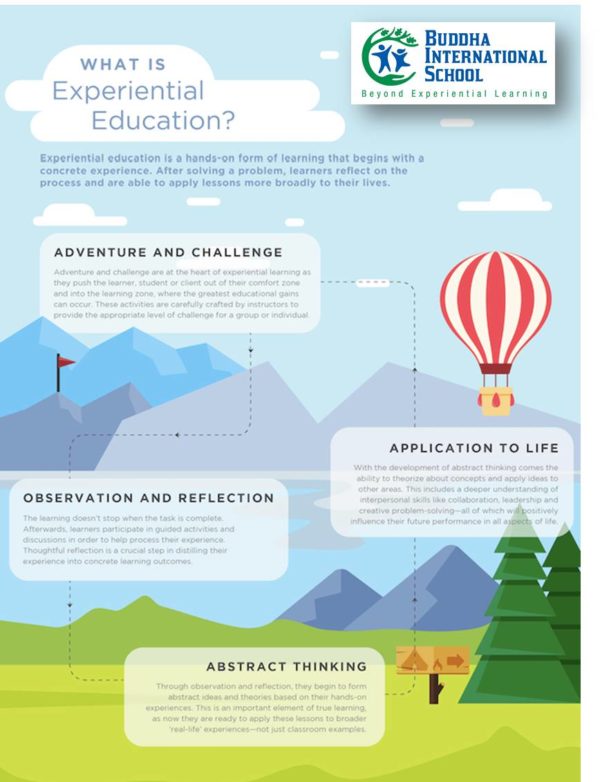
Experiential learning occurs when carefully chosen experiences are supported by reflection, critical analysis and synthesis. Experiences are structured to require the learner to take initiative, make decisions and be accountable for results. Throughout the experiential lsearning process, the learner2 is actively engaged in posing questions, investigating, experimenting, being curious, solving problems, assuming responsibility, being creative and constructing meaning. Learners are engaged intellectually, emotionally, socially, soulfully and/or physically. This involvement produces a perception that the learning task is authentic. The results of the learning are personal and form the basis for future experience and learning. Relationships are developed and nurtured: learner to self, learner to others and learner to the world at large. The educator3 and learner may experience success, failure, adventure, risk-taking and uncertainty, because the outcomes of experience cannot totally be predicted. Opportunities are nurtured for learners and educators to explore and examine their own values.
The educator’s primary roles include setting suitable experiences, posing problems, setting boundaries, supporting learners, insuring physical and emotional safety, and facilitating the learning process. The educator recognizes and encourages spontaneous opportunities for learning. Educators strive to be aware of their biases, judgments and pre-conceptions, and how these influence the learner. The design of the learning experience includes the possibility to learn from natural consequences, mistakes and successes.